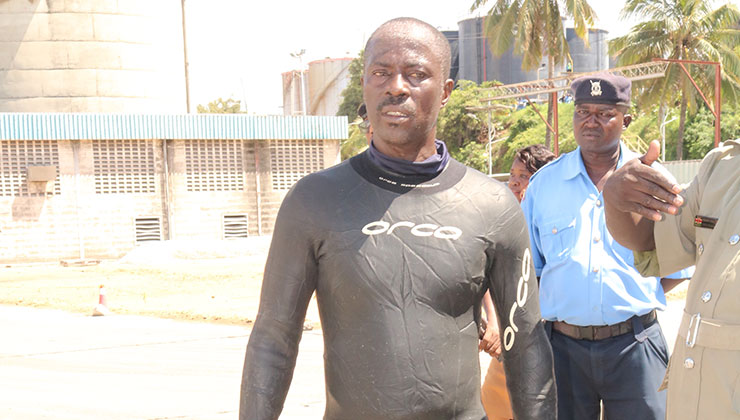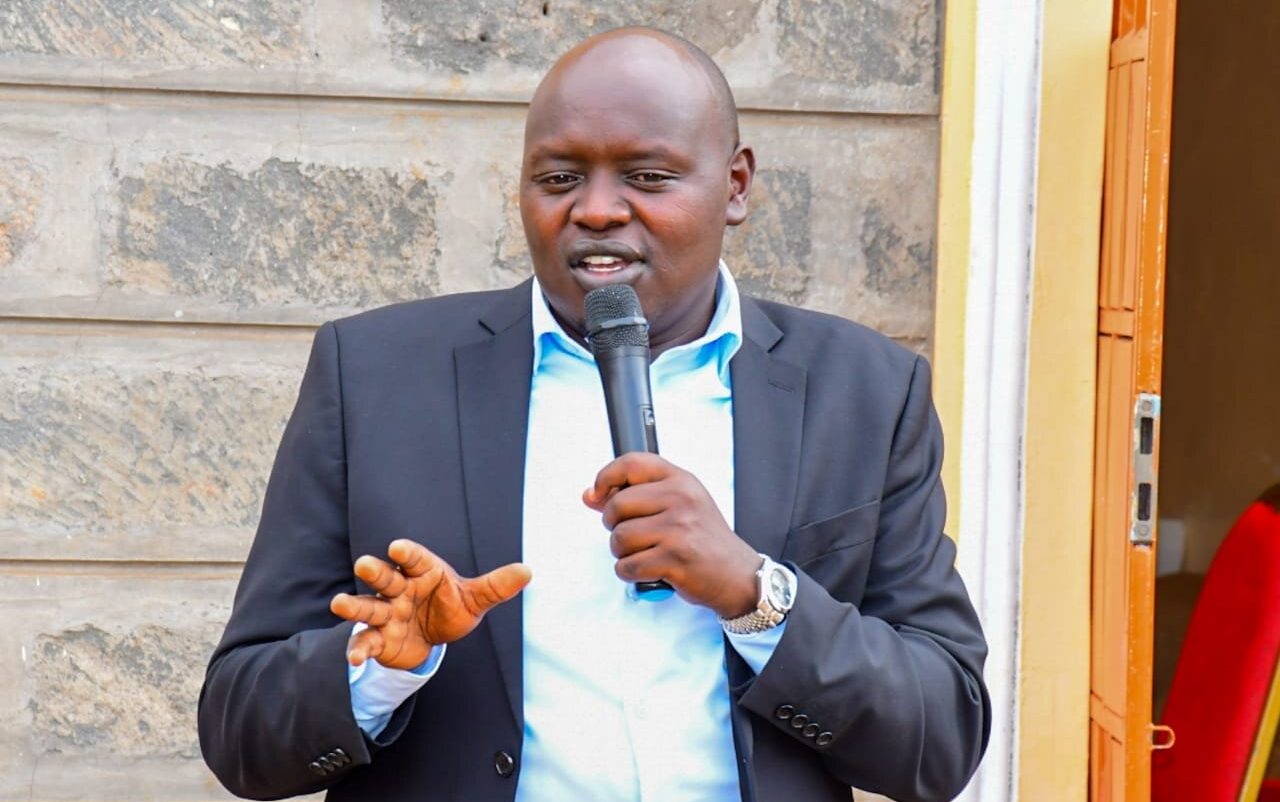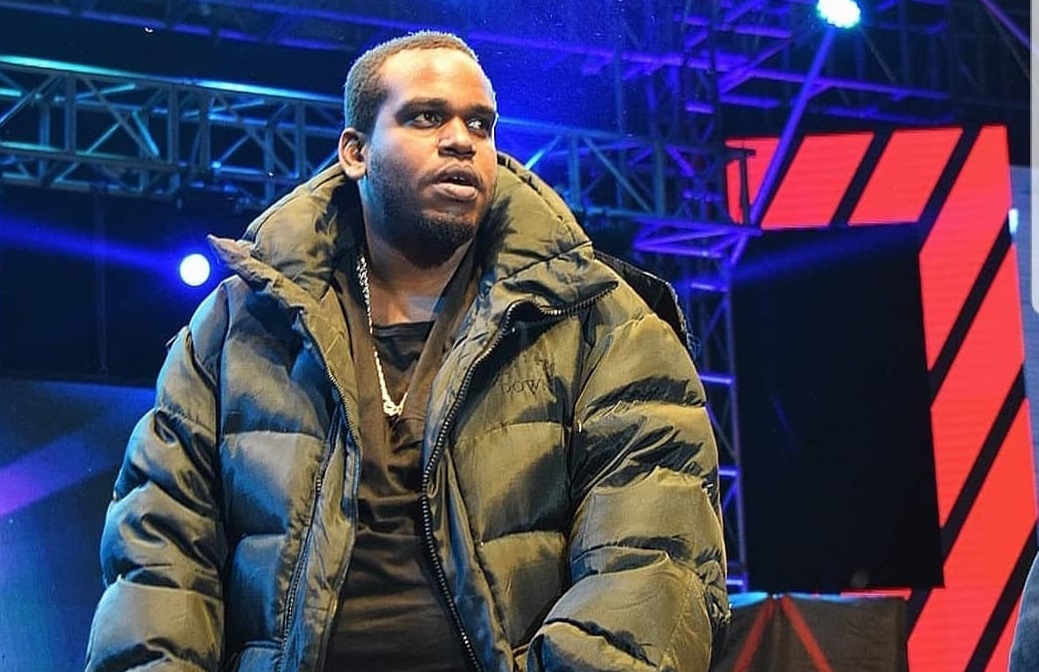When it comes to the underwater world, he dives like an amphibian and swims like a fish. And when he resurfaces, it is amid cheers of an acclaimed hero.
His name is Musa Sila, a Mombasa-based private rescue diver who is increasingly attracting admirers over daredevil feats in the ongoing search for bodies of Mariam Kigenda and her daughter Amanda Mutheu whose vehicle slipped off an Island-bound ferry midstream in the Likoni Ferry channel on Sunday.
The diver is the head of Kenya Rescue Divers, a private diving unit working alongside the Kenya Navy, Kenya Marine Fisheries Research Institute, Kenya Ports Authority and other government agencies in the search mission.
With already a string of memorable underwater rescues to his name, some dating back to the days of Mtongwe ferry tragedy in 1994, Musa is a name locals hold in reverence.


At 54 years, the ardent diver boasts of having retrieved an uncountable number of bodies from water bodies.
Most recently, Musa led a team that included his wife, in locating the wreckage of a chopper that plunged into Lake Nakuru in 2017, killing all occupants aboard, after nearly a month of searching.
In the Nakuru chopper crash, he located the wreckage after unsuccessful mission by divers from government agencies.
In August last year, Musa single-handedly retrieved bodies of two Tanzanian brothers who drowned near Fort Jesus in an ill-fated swimming expedition.
He says in his life as a diver, he has lost count of the number of bodies he has recovered from various water bodies in the country.
According to Musa, it was possible for lives of Mariam and her daughter to be saved if Kenya Ferry Services had standby rescue divers.
He differs with KFS authorities that attempts to rescue the victims at the sea accident could have been disastrous saying he has saved many lives in an almost similar situation.
“I happened to have rescued man who sunk with a water boozer at Mbaraki…I was passing by when I heard that a boozer had plunged into the water. I dived in without oxygen mask and pulled out the man who was on the verge of death from the wreckage…I gave him first aid and I am happy he is alive,” he recalls.
This is why Kigenda’s family contracted him to help retrieve bodies of their loved ones.
Residents camping at the scene of the accident have been cheering him on and have high expectations he will find the bodies.


Members of the public mill around Likoni crossing channel during the search of bodies of Mariam Kigenda and her daughter Amanda Mutheu. Two drowned on Sunday after their car slid off MV Harambee and plunged into the Indian Ocean. PHOTO | NDEGWA GATHUNGU | PD
Huge crowds camping at either side of the ferry channel since Sunday have often been heard chanting Musa’s name.
For Musa, who was born and raised in Mtongwe only a few meters from the Sunday’s Likoni accident, diving has been his passion and recreation since he was 11.
He attributes his polished diving skills to growing up near the Indian Ocean.
“I consider this a God-given talent in that I grew with swimming passion ever since I was a young boy… in those days we would dive in the deep Mtongwe waters up to over 20 meters during high tide. We used to compete on who would dive to the seabed and the only proof of reaching bottom of the sea was to resurface with a handful of sand. If you dive and come back without sand in your hand then nobody would be convinced that you touched the seabed,” recalls Musa.
Armed with his diving gear which includes a diving mask, dry suit, oxygen cylinder and scuba regulator, scuba gloves, diving computer watch and timer among other items, Musa says he is able to roam underwater with confidence.
“My experience has trained me to time myself with depth… for instance with 40 meters deep the oxygen cylinder and regulator I use allows me to stay underwater for about 20 minutes or so,” he says.
While underwater, Musa says he mostly uses a rope to carry out circle search to locate wreckages.
“Down there visibility is usually very poor and so it is difficult to use your eyes…now for us we don’t have advanced equipment to detect objects underwater. Therefore, we use a long rope to perform what we call a circle search. In the case of a wreckage, once we locate it underwater we fill small tanks with air and use them to hook and float the wreckage. We have done that several times,” he says.
He says his heart is for rescue diving, adding he quit as a seaman to focus on diving.
Musa has trained tens of youth in the Coastal Life Saving Club at Shelly Beach Likoni but says motivation for life savers has been hard to come by.
“We have done volunteer rescue diving since Mtongwe Ferry accident up to today. Yes, I have made a name for risking my life to save lives and recover bodies… but my pay is not commensurate…I believe the day I will meet the President I will be in a better position,” Musa says.










